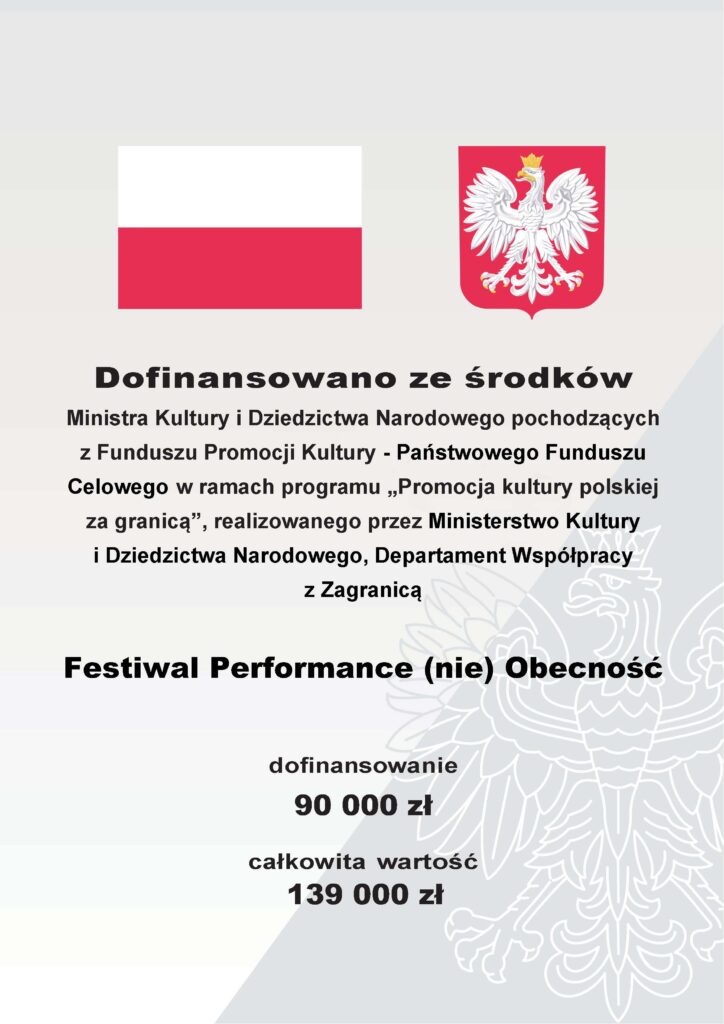Protect Me from What I Want
Jenny Holzer
The theme of this year’s second edition of the “(Non-)Presence” Festival of Polish Performance is taken from a work by the outstanding contemporary artist Jenny Holzer, who made text the central element of her artistic practice. In her 1982 piece Protect Me from What I Want, she stresses the internal conflict in each of us – between personal desire and the narratives imposed by the collective.
Language is a tool through which we construct the world, but it also holds the power to destroy it. Michel Foucault and Theodor W. Adorno emphasized that knowledge – and the language that constitutes it – is always a form of power, entangled in relations of force and domination. Words possess extraordinary influence: they shape our thoughts, emotions, and actions. However, their ambivalent nature means they can also lead to dangerous consequences. In today’s media-saturated reality, dominated by propaganda, language functions not only as a means of communication but also as a mechanism of manipulation, often leading to disinformation. Authorities and institutions frequently use words to craft narratives that distort truth and alter perceptions, contributing to the suffering of individuals and enabling violence, authoritarianism, or inhumane treatment.
In 1921, Ludwig Wittgenstein wrote: “The limits of my language mean the limits of my world.” While language allows us to comprehend and describe reality, it has its constraints that can hinder expression and mutual understanding. In the digital age, internet discourse contributes to the oversimplification of thought, reinforcing stereotypes and prejudices. Suppressed emotions, the absence of context, and a lack of empathy degrade the quality of interpersonal communication. The anonymity and limitations of contemporary modes of interaction nurture both alienation and aggression.
The program of this year’s Festival centers on a critical analysis of language, inviting the audience to reflect deeply on the political and social responsibilities that come with the words we use. Every sentence and phrase carries the potential to shape collective consciousness; their misuse can result in serious consequences. The concepts we employ are not just tools – they are living reflections of our fears, desires, and aspirations. With this in mind, we hope the Festival’s performances will serve as a call for mindful use of language and for reflection on the consequences of our messages in a world where speech is simultaneously a means of expression and a tool of manipulation. We will also be reminded of the importance of conscious participation in dialogue, in which each of us plays a unique and irreplaceable role.
Through authentic exchange, we can open the door to meaningful communication, building bridges that help to overcome chaos and misunderstanding. Let us learn to listen, interpret, and understand – not only words, but also silence.
Agnieszka Chodysz-Foryś, curator of the Festival

